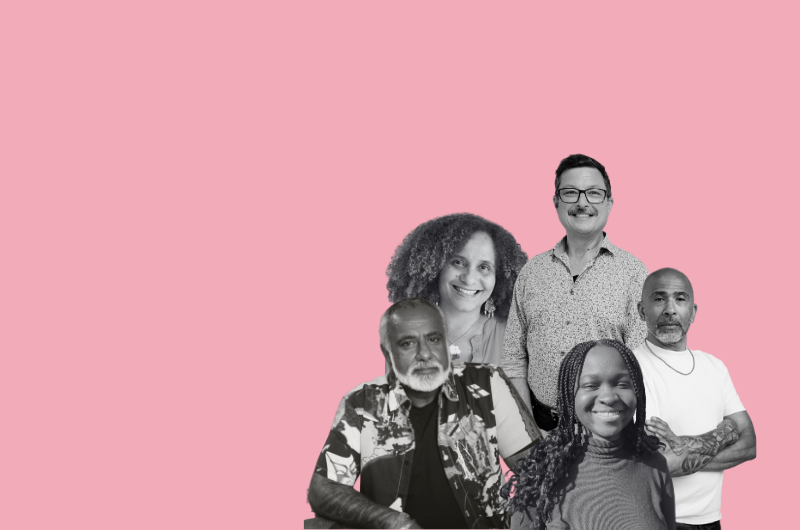Time to read
As we close out Black History Month 2025, we reflect on the powerful conversations, voices, and affirmations shared throughout October. Taking this year’s theme – Standing Firm in Power and Pride – we look at the history of the HIV response, celebrate the present community resilience, and recommit to continuing to build a more equitable future in HIV.
Leadership from the margins
Marc Thompson and Robbie Currie’s conversation reminded us that from the earliest days of the epidemic, people living with HIV from Black communities have led change.
“It wasn’t what I did that led me to HIV, it was what wasn’t available to me.” Marc Thompson, Do It London
This highlighted the structural inequities present in those early years: stigma, invisibility in policy, lack of culturally competent services, and racial bias in health systems. But still, today, Black communities see lower PrEP uptake, higher rates of late diagnosis, and systemic barriers to testing, treatment, and retention in care.
Over the course of this month, our video series uplifted three voices who bring lived experience, leadership, and clarity to the theme.
Voices from our community
“People from Black communities have always been leaders in the HIV response. We don’t need anyone else to empower us.” Susan Cole, Phoenix Health Movement
Susan’s words remind us that power does not always come from external validation, but from self-determination and community roots. Susan’s work dismantling health inequities shows the vital role of Black-led organisations in shaping solutions.
“Power is the ability to claim space unapologetically, and pride is the courage to celebrate who we are without shrinking ourselves.” Pank Sethi, London HIV Prevention Programme (GMI Partnership)
Pank frames standing firm as personal practice and public witness. As someone living with HIV, his reflections reinforce how space, dignity, and visibility matter not just as ideals, but as ongoing necessities in health access, activism, and community strength.
“Black History Month is about celebrating the progress of Black HIV activists and addressing the health inequalities still faced by our communities.” Oluwakemi Agunbiade, Senior Policy Officer, National AIDS Trust
Kemi’s role at National AIDS Trust offers a bridge between advocacy, research, and frontline leadership. Her words remind us that celebration and critique must go hand in hand if we are to ensure no one is left behind.
From recognition to action
Throughout the month, our aim has been more than commemoration. It has been a call to deepen how we practice equity, shared power, and community leadership in HIV work. As Marc challenges in his conversation with Robbie:
“It’s about meaningful co-production – communities shaping services from the start, not as an afterthought.”
Power-sharing must be real. It means shifting leadership, investing in succession, designing services in partnership, and ensuring that lived experience, in all its diversity, is central to every stage of decision-making.
What’s next?
Black History Month may be ending, but our commitment does not. Standing Firm in Power and Pride is not just a slogan – it’s a call to action for all of us in the sector.
In the months ahead, we will continue:
• Elevating unheard voices through reports, blogs, and media.
• Pushing for structural change in commissioning, health systems, and research.
• Supporting leadership development and succession within communities most affected by HIV.
• Challenging stigma, racism, and inequity whenever and wherever they appear.
We are grateful to Susan, Pank, Oluwakemi, Marc, Robbie and everyone who contributed to this month’s reflection. Their voices must inspire us not just to remember, but to continue to act, and to advocate.


